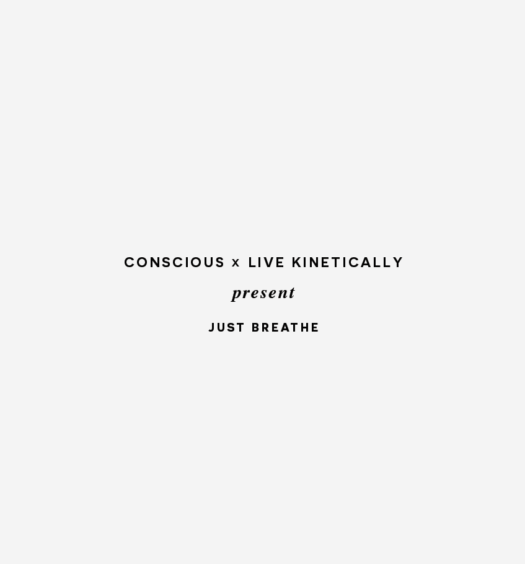Understanding Anxiety Disorders And Talking About Self-Acceptance
 My eyes open up as I lay in bed and for a brief moment I forget I had a panic attack the night before. My body feels like I got hit by a truck, my chest aches with every breath and my ego is wounded. My eyes fill with tears, and I say a quiet prayer that I fall back asleep and forget, for a bit longer, what happened the night before. I get out of bed, look in the mirror and say out loud, “Why am I like this?”
My eyes open up as I lay in bed and for a brief moment I forget I had a panic attack the night before. My body feels like I got hit by a truck, my chest aches with every breath and my ego is wounded. My eyes fill with tears, and I say a quiet prayer that I fall back asleep and forget, for a bit longer, what happened the night before. I get out of bed, look in the mirror and say out loud, “Why am I like this?”
I’ll be the first to admit that it’s sometimes impossible to accept and understand myself.
I’ve been battling my anxiety disorders for ten years. No matter how healthy I get or how educated in my illness I become, every panic attack is like the first one. It’s terrifying, debilitating, and defeating. Now being a social entrepreneur, I have made it my mission to not only share my story of anxiety but live stream my obstacles as they hit me.
What is anxiety disorder? Who does it affect? What does it look like? How bad can it be?
I’m so glad you asked.
The Anxiety Disorder Association of America has found that approximately 40 million adults in North America, 54% of them being women and 46% of them being men, experience anxiety disorders. Of that number, only 10% of those suffering will receive effective help. That is only 400,000 people out of 40 million. I am no statistician, but this number shocks me.
Anxiety is something that everyone experiences. Everyone has felt anxiety for temporary moments in their lives. You feel your stomach drop, your hands sweat, and maybe you feel butterflies in your stomach. However, the feeling is short-lived. Those who battle anxiety disorders do not have the luxury of those feelings being temporary.
Those struggling may not only feel like it is impossible to sleep or be irrationally irritable but may completely lose their appetite, feel out of control and have a restless feeling in their muscles that they can’t shake. It can be unbearable and leaves you feeling helpless. Unfortunately, I say this from experience.
What makes this illness so difficult to grasp and understand is that it has an unlimited amount of causes. Although through therapy I have learned that anxiety is a learned disorder, new research is showing that these disorders can be brought on by a combination of genetics, brain chemistry, personality and life events.
Not only are there many different causes of anxiety disorders, this illness, like all mental illnesses, does not discriminate. It can affect people from all different backgrounds, races, creeds, and genders. It does not care what your job is, how big or small your family is, if you have millions in your bank account or if you don’t have two pennies to rub together. It doesn’t care if you are married, single or playing the field. It doesn’t matter if you like hip hop, alternative or classical music. It doesn’t care if you are in 2nd grade or the CEO of a giant corporation.
Mental Illness can affect anyone, anywhere. Because of this, we need to talk about it. We need to get the issues out there and normalized so more people can speak up and share their experiences and get help. The more we talk about it, the more we learn and the more we can understand each other and ourselves.
Talking about my issues, in fact, helps me so much. That’s exactly why I created Listen, Lucy.
ListenLucy.org is an anonymous online outlet where people can share their struggles without fear of judgment. It’s a place where the world is becoming kinder and where we embrace our flaws. I’m trying to help people, and myself, learn to love ourselves completely.
In October, I had the life-changing opportunity to go on my first speaking tour. I spoke to adults, college, high school and middle school students about my story and Listen, Lucy’s mission to help people embrace acceptance. We filmed it all and turned it into The Acceptance Movement docuseries.
On this tour, I saw first hand that self-acceptance is a struggle many experience. I spoke to people who bared their souls from battling all consuming insecurities, loneliness, eating disorders, severe depression, bullying and so many other heartbreaking things. It opened my eyes and, at times, left me speechless.
Having anxiety disorder and being a public speaker while running my own company has definitely created a brand new set of challenges for me and there are many times I have felt like giving up, but there are moments that have happened that makes every minute of the struggle worth it.
After speaking to a school this fall, a student reached out to me to tell me their story of being bullied and battling depression. They said how horrible it had been, that they have been harming themselves and that on some days they wanted to die. My heart broke and started to race at the same time.
I am so beyond grateful that through a lot of emailing back and forth with this student, I was able to get their name and reach out to their school on their behalf. I was able to get this brave young person the help they deserved and make them feel heard. The next day, I emailed to check in and see how things were going. They sent me a screenshot of a message they put up on Facebook. The message said that a week before the assembly, this student laid in bed and prayed to God that there would be a solution for their depression and that life wouldn’t be so hard anymore. They said that Listen, Lucy was the answer to their prayers.
There is no way I will ever forget that day. I will never forget that Listen, Lucy quite possibly saved that person’s life. Like I said, every single struggle has been worth it.
Self-acceptance may just be the key to living a happy life.
Self-acceptance is not only being OK with your struggle but realizing the strength it has given you. It is loving yourself on your horrible days. It is celebrating yourself on the good days. It is looking in the mirror and knowing that you are a work in progress, but loving yourself anyway. It is actively knowing that you are giving it your best and even when your best may not be enough, it is knowing that you are still so cool.
Self-acceptance is not trying to be perfect but embracing your imperfections. It is knowing that you are going to mess up and even fail but that those failures do not decrease your worth. Self-acceptance is learning to love who you are, unconditionally.
Wouldn’t it be so beautiful if 2017 was the year of self-acceptance?
FROM THE EDITOR
At Conscious, we are inspired by stories that cause us to think differently and think big-picture, and so we set out to tell stories with the help of leaders and influencers within the social good community. You can read more stories like this when you join as a member.



